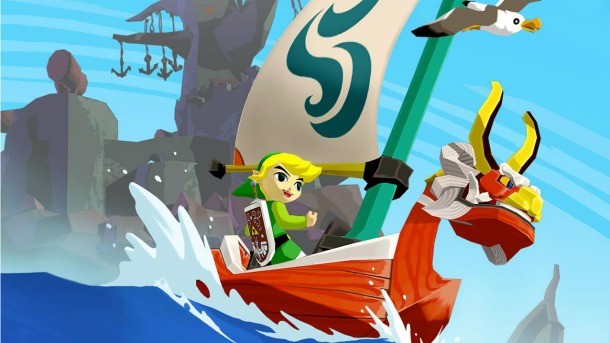Opinion: Just Because It's Different Doesn't Mean It's Bad

Whenever the newest installment in a franchise comes out, one thing fans love to do is critique the new game on the basis of whether or not it contains the trademark features they feel it should have – how well it represents their favorite franchise. While it can be unavoidable to judge games based on their predecessors or where they belong, I think dismissing or ridiculing a game based on whether or not it lives up to a pre-conceived notion of what it should or shouldn’t be isn’t fair and can be harmful, both to the process of making video games and to our ability to enjoy them.
It’s happens a lot: A Resident Evil or a Dragon Age will come out, and it will be substantially different from previous games in the series or what fans may have been expecting. The games, regardless of quality, get backlash from fans for not being a “good” game of their franchise, and arguments like “it’s a good game, but it isn’t a good Resident Evil game” crop up everywhere. Discussions about the game focus more on how well the game represents the hallmarks of the series than with whether or not the game is actually fun.
Oftentimes a fan will even dismiss the game outright or argue that it just isn’t right to change the franchise; that the game can’t possibly be good, simply because of the changes they don’t like. It’s sad and ironic, but a lot of times a fan’s nostalgia and love for a franchise will create a mentality that poisons their ability to appreciate it. It’s a worst-case scenario for everyone involved; the fan doesn’t get to enjoy the experience they’ve been looking forward to, and the games themselves don’t get a fair chance.

I hated Final Fantasy XIII the first time I played it. It simply wasn’t a Final Fantasy game to me – there was no open-world exploration, no side-questing, the characters were generic and annoying, and the combat didn’t feel right. I was among those fans that went to message boards early on, complaining to anyone who would listen that Final Fantasy XIII wasn’t the game (I thought) I was promised, and that it didn’t deserve to be called a Final Fantasy game at all.
In the context of all the Final Fantasy titles I’ve played, XIII is still my least favorite. It hardly feels like a Final Fantasy game to me; I hate that it’s linear, and I was never interested in the paint-by-numbers JRPG story or the frankly awful characters. Once I was able to get past the (unfounded) idea that I had been somehow slighted, however, I realized that there is something to it worth experiencing, and I began to have fun.
Ironically, Final Fantasy XIII is at its best when it isn’t trying too hard to be a Final Fantasy game. The innovations XIII made to combat are, in a lot of ways, brilliant, and created a classic RPG that emphasized abundant character customization, dynamic, hands-on turn-to-turn gameplay and minimized the importance of annoying classic RPG features like between-fight health management and grinding.
When I was only interested in how XIII wasn’t living up to my expectations, I saw all of these features as almost blasphemous, examples of how Square Enix missed the mark. My love for the franchise and unwillingness to adapt to change was directly impeding my ability to appreciate the best of what the game had to offer. Once I was able to evaluate Final Fantasy XIII as a game in itself, and not part of some grand nostalgic tradition I had built up in my own head, I was able to enjoy it for what it is: a good game.

In being close-minded or dismissive of attempts to introduce new mechanics to a long-running franchise or inject a surprising or fresh component into an established genre, we can actually hurt the futures of our favorite franchises, and of video gaming in general. I hated the best parts of Final Fantasy XIII just because they weren’t what I wanted them to be. When The Legend of Zelda: The Wind Waker or Super Mario Sunshine came out, a lot of die-hard fans were aghast at what they perceived as a betrayal by Nintendo, and (depending on how overzealous they were) a deliberate attempt to “ruin” their favorite franchises in order to court new customers – or for any other number of conspiratorial reasons.
Imagine if Nintendo had responded to the pressure by canning Wind Waker or Sunshine. What if they decided that experimenting with their franchises was a bad idea and that they should instead stick to what they know? We would have missed out on two of the GameCube’s best games.
The only criteria for whether or not they should be considered good should be if they are well made and fun. It shouldn’t matter what it was supposed to be, what was promised, or what we wanted to it to be. When we let ourselves become entrenched in what we want from a game and lose perspective on what makes it fun in the first place, we are hurting the potential for innovation in video gaming. Even more importantly, we cheat ourselves out of the opportunity to just enjoy playing a good game.

Get the Game Informer Print Edition!
Explore your favorite games in premium print format, delivered to your door.
- 10 issues per year
- Only $4.80 per issue
- Full digital magazine archive access
- Since 1991









